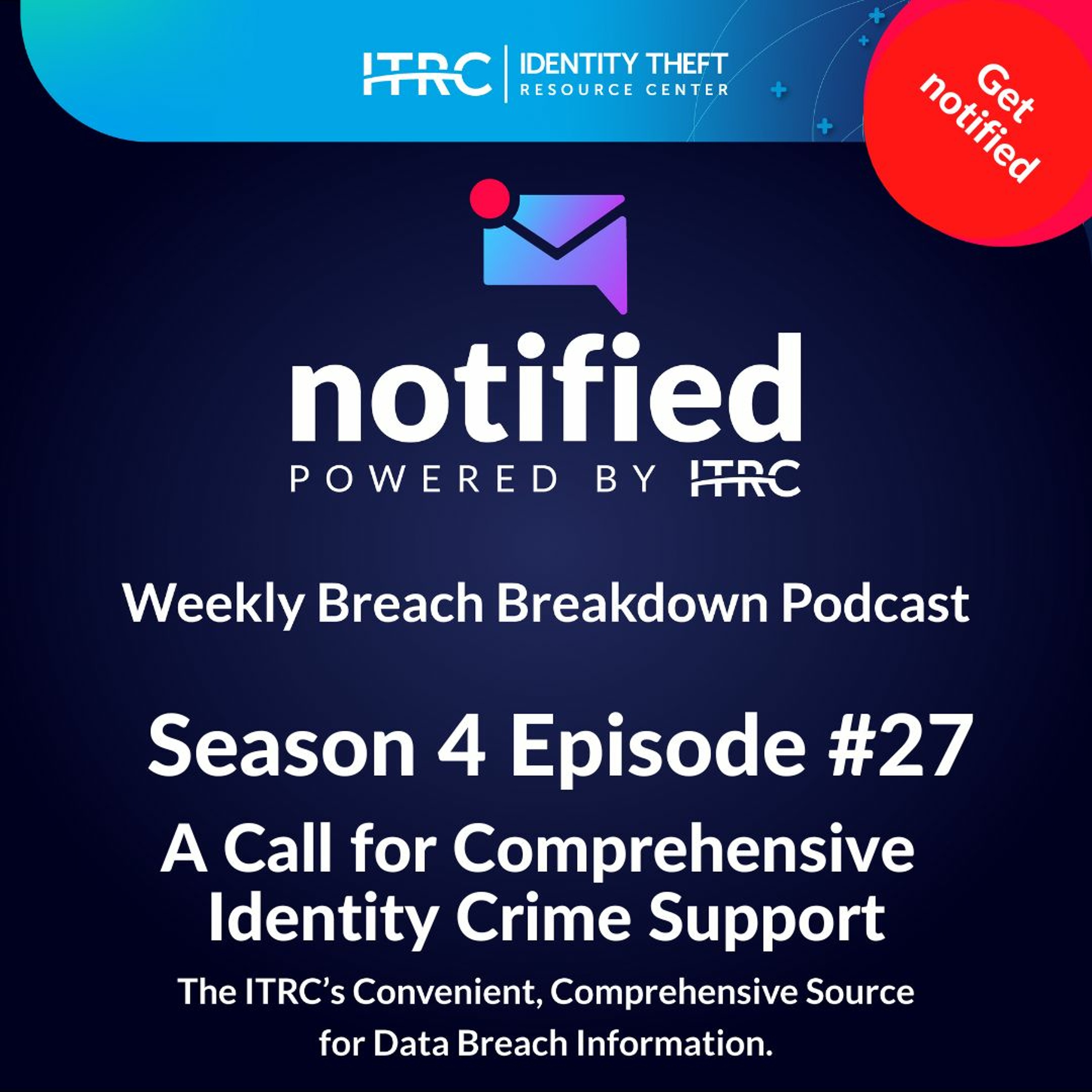Each week, you usually hear from James, Tim, or Alex on the most recent events and trends related to data security and privacy. However, today I want to share a message with you all on why we should take identity crime victimization seriously and the importance of comprehensive support for these victims.
Show Notes
Follow on LinkedIn: www.linkedin.com/company/idtheftcenter/
Follow on Twitter: twitter.com/IDTheftCenter
Show Transcript
Welcome to the Identity Theft Resource Center’s (ITRC) Weekly Breach Breakdown for September 22, 2023. Thanks to Sentilink for their support of the podcast and the ITRC. Each week, we look at the most recent events and trends related to data security and privacy. This week, we change it up and hear from ITRC President and CEO Eva Velasquez as she delivers a message on why it is time for comprehensive identity crime assistance.
A Message from Our CEO
President Biden released in March a Presidential Proposal for addressing the rise in identity fraud that grew during the pandemic and continues at elevated rates today. Part of that plan included increased resources with coordination between government agencies and nonprofit victim support groups. If the need was great in early 2023, it is even greater as we near the end of the year.
For more than two decades, the ITRC has witnessed the consequences identity crimes have on individuals, families and communities. However, for the first time in my ten years as the ITRC’s CEO, the rate of identity crime victims contemplating suicide has grown to 16 percent from four percent pre-pandemic in our annual victim impact research. So, why are more identity crime victims contemplating suicide?
The identity crime landscape has evolved with criminals employing increasingly sophisticated, constant, multi-channel attacks. However, it is society’s response that compounds the impact. How we talk to victims and about them contributes to a culture of shame and humiliation where victims blame themselves and feel unsupported. Statements like “it’s not as bad as violent crime” or referring to victims as “duped” perpetuate feelings of culpability and invalidation.
The words of victims paint a very clear picture of what it’s like to be violated in this way: “I isolated myself from everyone because I can’t make ends meet, can’t get help or assistance, and I feel like an idiot.”
When working with identity crime victims, a stark reality emerges – there are too few resources to aid too many victims. Organizations that should provide identity crime assistance often shun them, while government agencies are resource-constrained, unequipped or unable to help for lack of jurisdiction.
The path forward requires resources that offer emotional support, financial recovery assistance and legal guidance. Mental health services should be readily accessible for those struggling with the profound trauma caused by these crimes. Financial institutions, law enforcement agencies and victim advocacy organizations must collaborate to provide tailored assistance that empowers victims to regain control over their lives.
As the Biden Administration has acknowledged, we need to dismantle the notion that being an identity crime victim is a minor inconvenience. Let’s underscore that victims are not at fault but rather targets of cunning criminals exploiting vulnerabilities in our increasingly digital world.
- Eva Velasquez, President and CEO, ITRC
Contact the ITRC
If you want to know more about how to protect your business or personal information or if you think you have been the victim of an identity crime, you can speak with an expert ITRC advisor on the phone, chat live on the web, or exchange emails during our normal business hours (Monday-Friday, 6 a.m.-5 p.m. PST). Just visit www.idtheftcenter.org to get started.
Thanks again to Sentilink for their support of the ITRC and this podcast. Next week, we will have two episodes of our sister podcast, The Fraudian Slip, breaking down the findings in our Identity in Practice Report, which will be released on September 26. This report is part of a three-year initiative that seeks to understand and examine identity crime victimization across Black communities in the United States. We are excited to have special guests Jill Roberts, Director of Advocacy at Clarifi, and Jordan Brensinger, a Postdoctoral Research Associate at Princeton University, on the podcast. You will be able to download the report by visiting www.idtheftcenter.org/publications.
We will return in two weeks with another episode of the Weekly Breach Breakdown.
Listen On
Also In Season 4
-
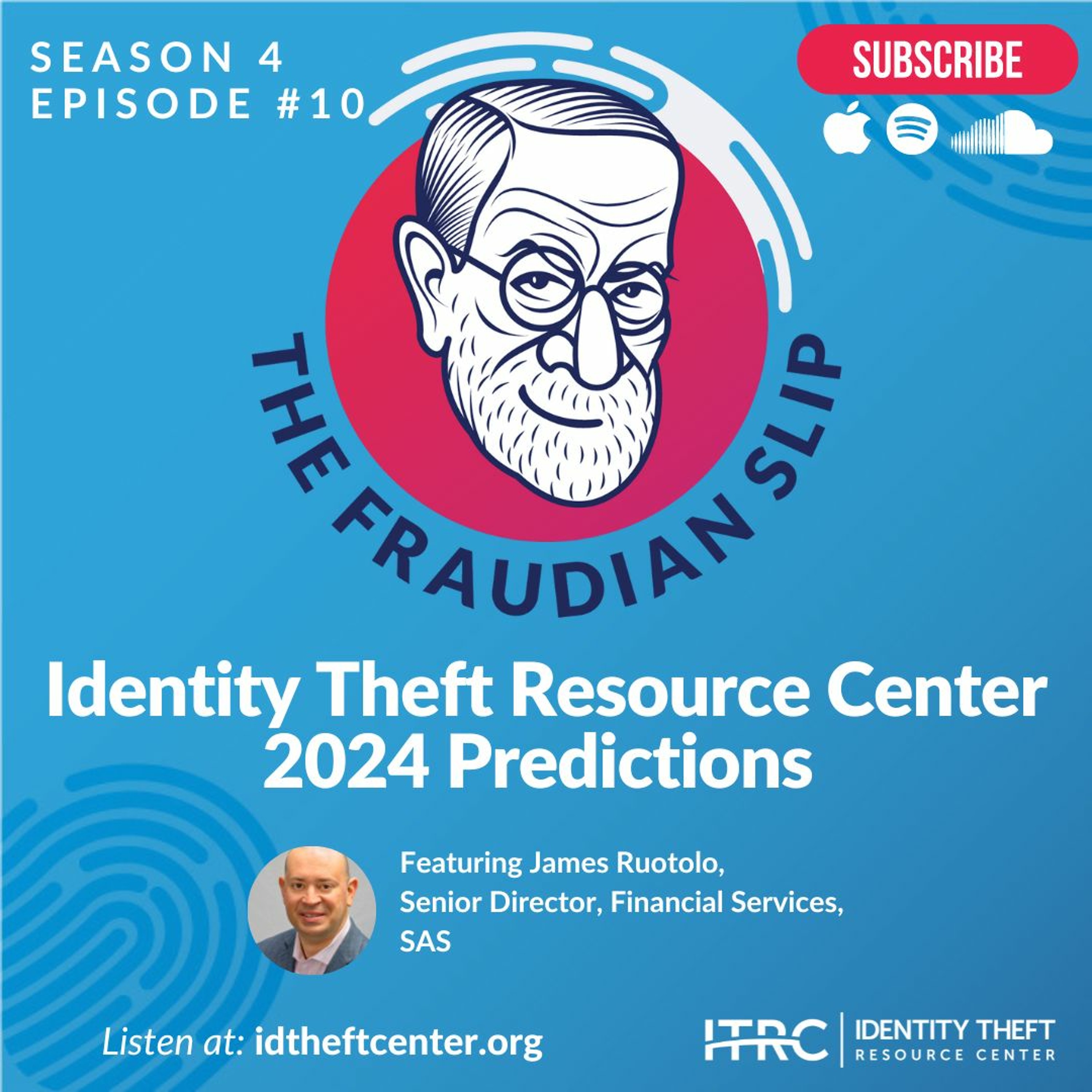
The Fraudian Slip Podcast ITRC - 2024 Predictions
Welcome to the Fraudian Slip…the Identity Theft Resource Center’s podcast where -
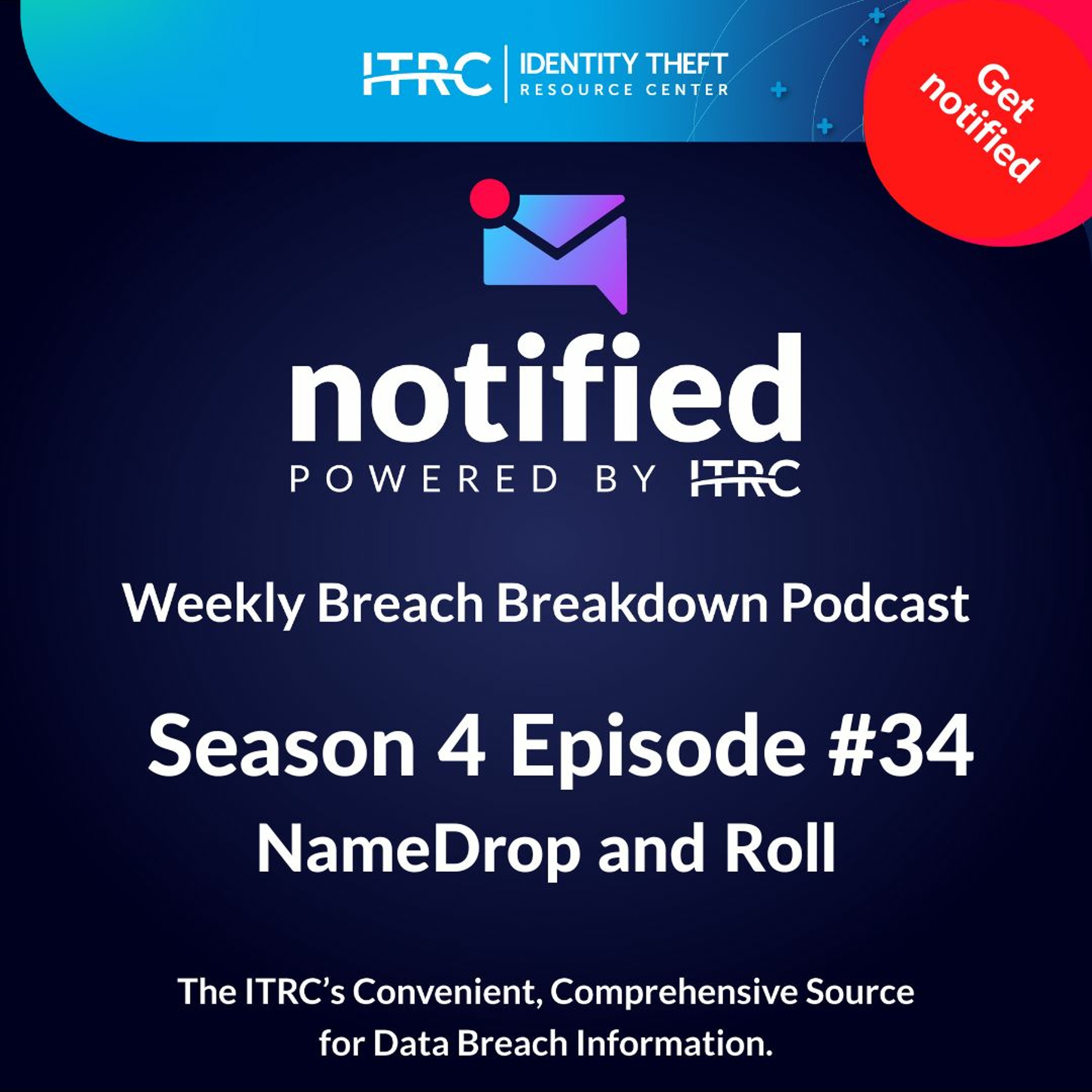
The Weekly Breach Breakdown Podcast by ITRC - NameDrop and Roll - S4E34
Welcome to the Identity Theft Resource Center’s Weekly Breach Breakdown for Dece -
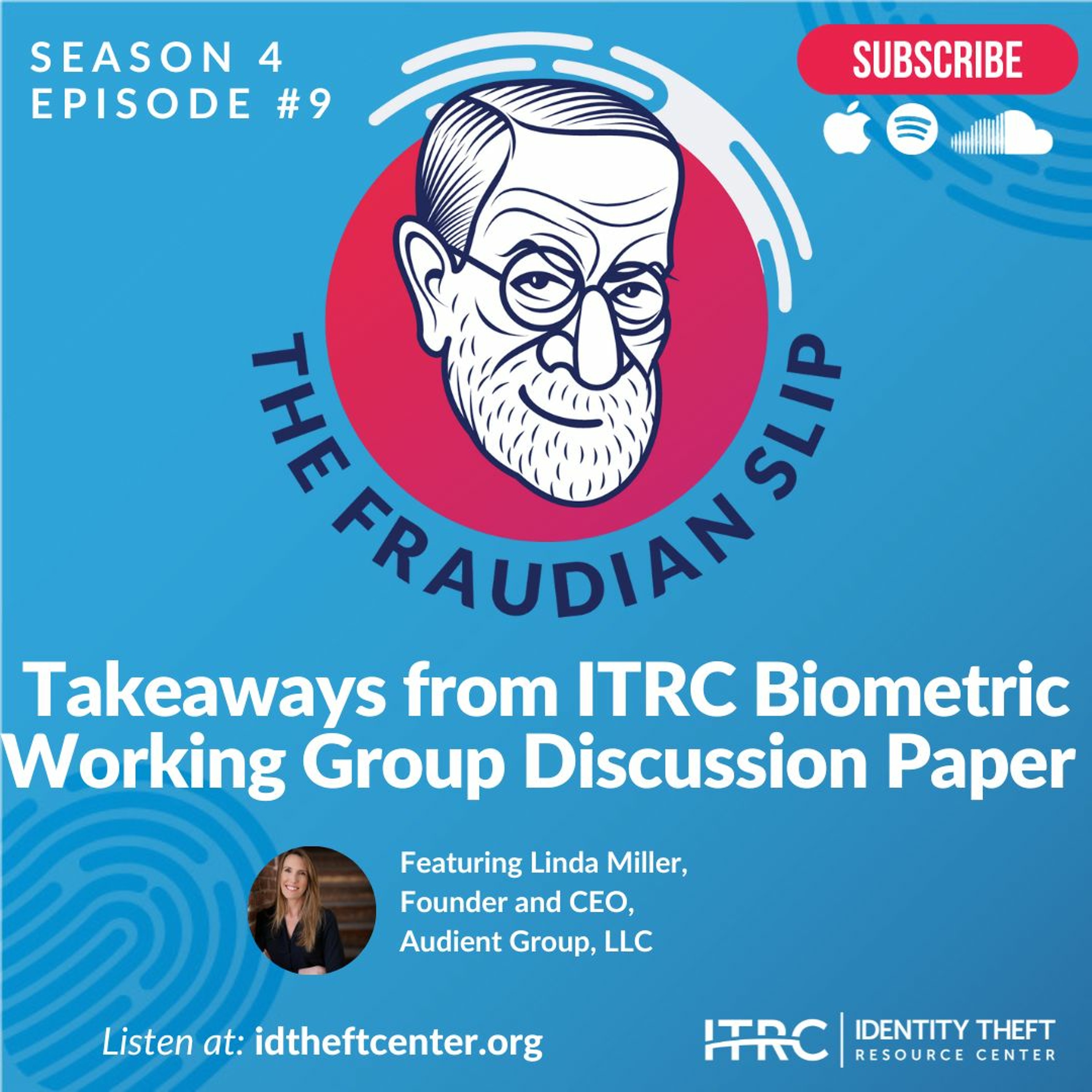
The Fraudian Slip Podcast ITRC - Takeaways from the ITRC Biometric Working Group Discussion Paper
Welcome to the Fraudian Slip…the Identity Theft Resource Center’s podcast, where -
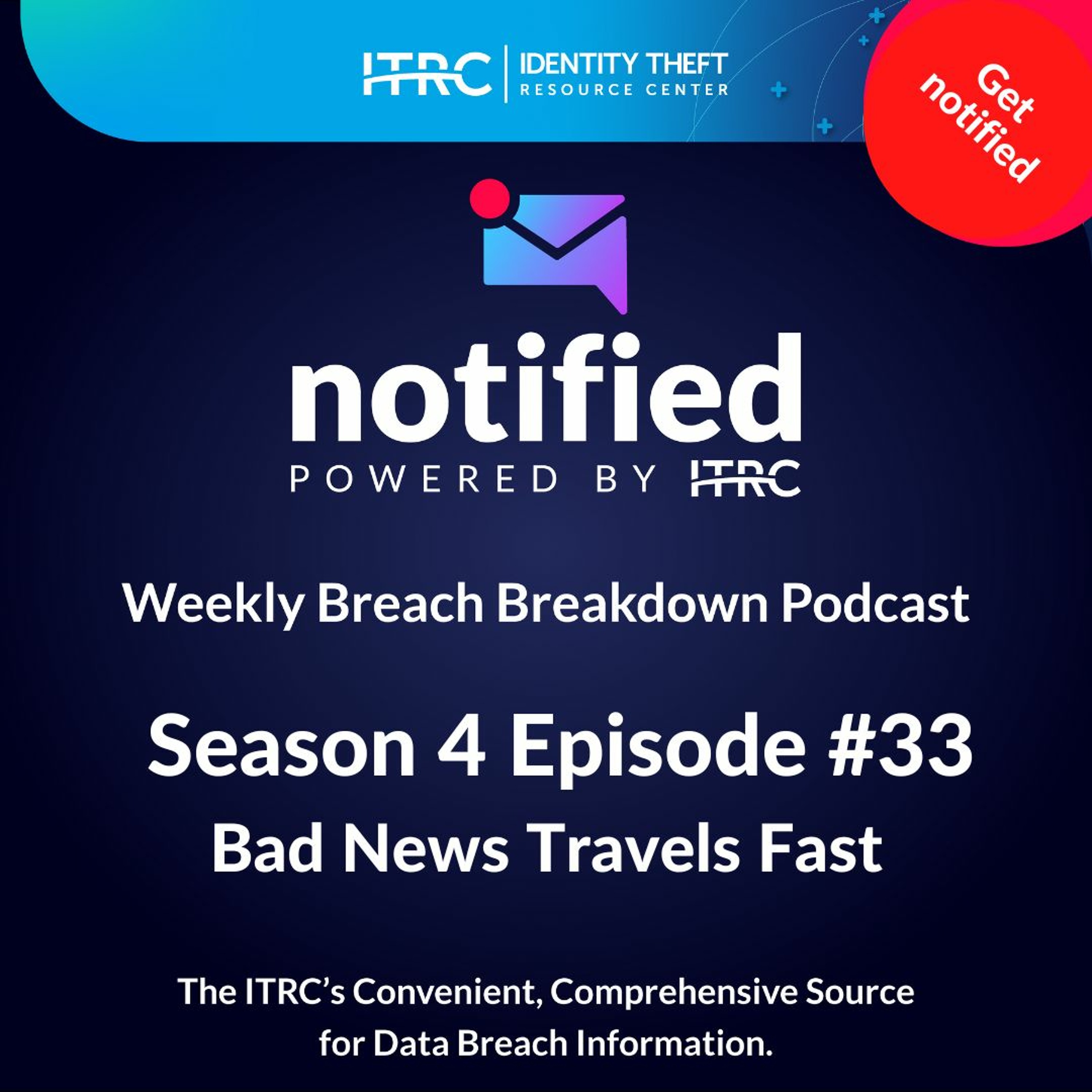
The Weekly Breach Breakdown Podcast by ITRC - Bad News travels Fast - S4E33
Welcome to the Identity Theft Resource Center's Weekly Breach Breakdown for Nove
